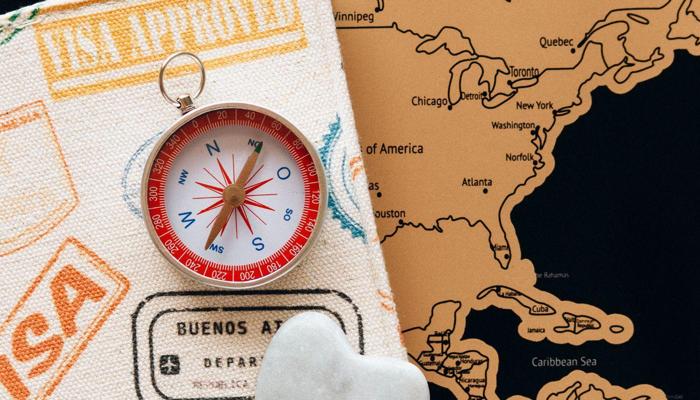Unlock the world's wonders by respecting cultural differences. Discover 8 tips for mindful travel. Learn more here!
Travelling the world can be a truly enriching experience, a chance to broaden your horizons
and create memories that last a lifetime. But it's also important to remember that you're a guest in someone else's "home", so to speak.
And like any good guest, it is important to be respectful of the local customs, traditions, and ways of life. Doing this not only enhances your own travel experience but also fosters positive interactions with the people you meet along the way.
After all, a little cultural sensitivity goes a long way in building bridges and creating a more connected world. Here are eight simple tips to ensure you travel with respect and embrace the beauty of cultural diversity:
Do Your Homework Before You Go
In today's digital age, information is easily accessible. So, before you pack your bags and head off on your adventure, take some time to learn about the culture of the place you will visit. Read up on basic etiquette, common greetings, and any potentially sensitive topics.
Understanding a little about the local customs can make a big difference in how you are received and will help you to avoid unintentionally causing offence.
For instance, in some cultures, direct eye contact is seen as a sign of challenge or disrespect, while in others, it is considered a sign of honesty and attentiveness. Knowing these nuances can help you navigate social interactions more smoothly.
You can find a wealth of information online through travel blogs, cultural guides, and even official tourism websites. Watch documentaries, read books, and even connect with people who've travelled to your destination before.
The more you know, the more prepared you will be to embrace the culture and avoid any embarrassing gaffes. Arming oneself with prior cultural knowledge is most useful and keeps one away from an awkward situation.
Learn a Few Basic Phrases
While English is widely spoken in many parts of the world, making an effort to learn a few basic phrases in the local language can go a long way in showing respect and building rapport.
Even just saying "hello," "thank you," and "please" in the local tongue conveys your willingness to connect with the local people. Locals often appreciate such attempts, even if your pronunciation isn't perfect. They see it as a sign of genuine interest and respect for their culture.
Plus, knowing a few basic phrases can be incredibly useful in everyday situations, like ordering food at a restaurant, asking for directions, or haggling at a market. You can easily learn these phrases using language learning apps, online tutorials, or even simple phrasebooks.
Don't be afraid to try them out, even if you feel a little self-conscious at first. Most people will be patient and encouraging, and they'll likely be impressed by your efforts. A little language goes a long way in making an experience more joyful.
Dress Appropriately
The way you dress can speak volumes about your respect for the local culture. In some countries, particularly those with strong religious traditions, modest dressing is expected, especially when visiting religious sites. This might mean covering your shoulders, knees, and head.

Research the local dress codes before you go and pack accordingly. Even if there aren't strict rules, opting for more conservative clothing can help you blend in and avoid unwanted attention. Avoiding clothes that are revealing or too flashy can also signal your respect for local norms.
Remember, dress codes are not just about religious beliefs; they can also reflect cultural values and social expectations. By dressing respectfully, you are showing that you are aware of and sensitive to these values. Also, take weather into account and wear comfortable shoes.
Looking at the place and getting ready beforehand prepares the traveller.
Be Mindful of Nonverbal Communication
Communication is not just about words; a lot is conveyed through nonverbal cues such as body language, gestures, and facial expressions. What might be perfectly acceptable in your culture could be offensive or have a completely different meaning in another.
For example, in some cultures, pointing with your finger is considered rude, while in others, it's customary. Similarly, the meaning of gestures like nodding or shaking your head can vary widely from country to country. Eye contact is another area where cultural differences can be significant.
Direct eye contact is valued in some cultures, while it is considered disrespectful in others, especially towards elders or people in positions of authority. Pay attention to the nonverbal cues of the people you interact with and try to mirror their behaviour.
Observing how locals interact with each other can give you valuable insights into their nonverbal communication norms. Being mindful of your own body language and being adaptable to the norms of your host culture can greatly enhance your interactions and avoid miscommunication.
Respect Local Customs and Traditions
Every culture has its unique set of customs and traditions, some of which might seem unfamiliar or even strange to you. Instead of judging or criticizing these customs, try to understand and appreciate them. Participate in local ceremonies, festivals, and celebrations whenever possible.
It's a great way to immerse yourself in the culture and learn more about its history and values. However, always be respectful and mindful of your behaviour. If you're unsure about something, don't hesitate to ask a local for guidance.
They will usually be happy to explain their traditions and customs to you. Remember that you are a guest in their "home," and your respect for their traditions will be greatly appreciated.
Even small gestures, like removing your shoes before entering a home or temple, can demonstrate your awareness and respect for local customs. Make an effort to learn about the significance of certain traditions.
Be Patient and Understanding
Things might not always go as planned when you're travelling in a different culture. Transportation delays, language barriers, and different ways of doing things can sometimes lead to frustration. Instead of getting angry or impatient, try to remain calm and understanding.
Remember that you are in a different environment and that things might be done differently than what you're used to. Be open to learning new things and adapting to new situations. A little patience and flexibility can go a long way in making your travels more enjoyable and less stressful.
Embracing the unexpected and accepting cultural differences as part of the adventure can transform potential frustrations into valuable learning experiences. Patience ensures a pleasant experience while travelling.
AI Generated Content. Glance/InMobi shall have no liability for the content



















